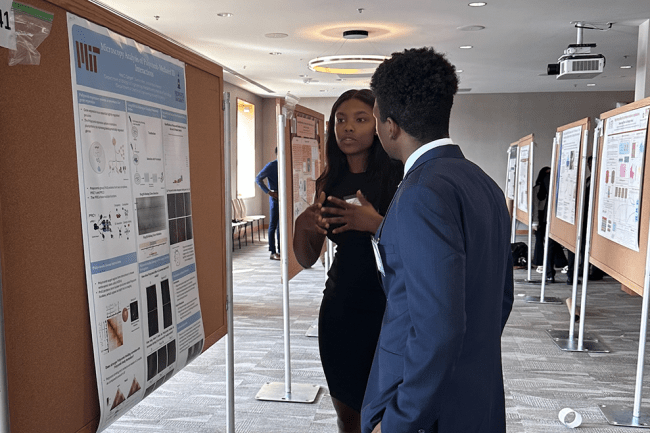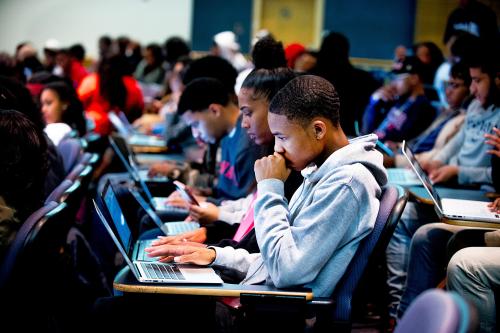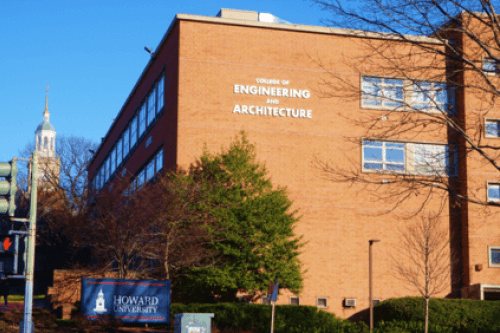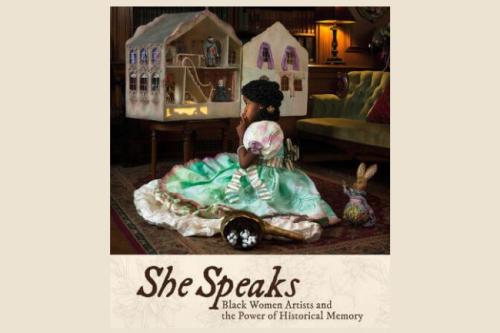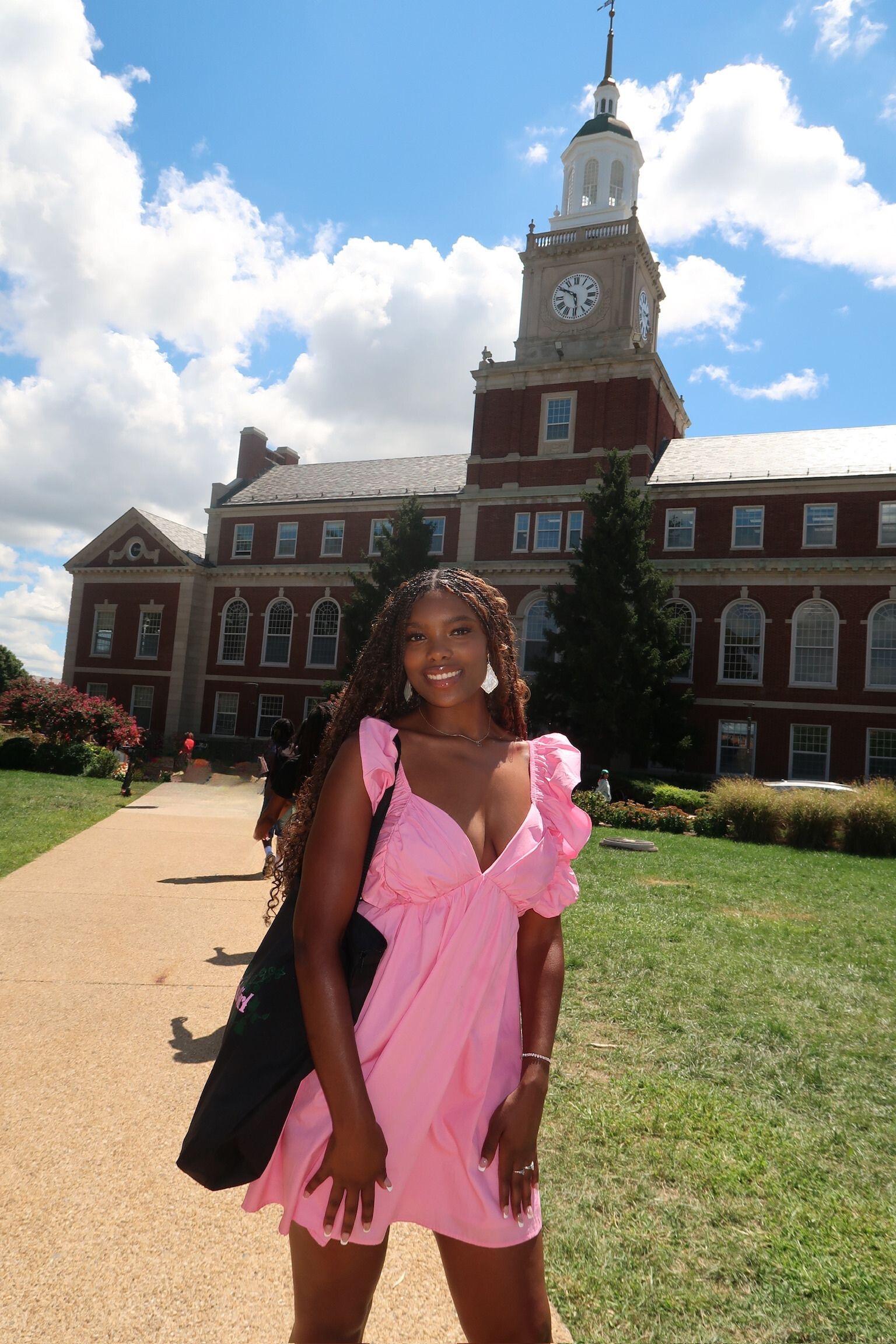
This year, Howard University celebrates the 158th anniversary of its founding with Charter Day activities, beginning with the convocation Feb. 28 and ending March 1 with the Charter Day Dinner, during which several alumni will be honored for their achievements. Most importantly, funding will be raised to support current students in financial need. For the students who benefit from the proceeds of the dinner via scholarships, the celebration of the University’s rich history also symbolizes the promise of a future the next generation of Bison will create — made possible through funds raised by alumni and those who support Howard’s mission.
The whole goal of chemical engineering is to learn how to solve real world problems.”
Aya Conyer, a senior chemical engineering major, is already helping to create that future. She is a Karsh STEM scholar and previous recipient of scholarship funds raised during Charter Day. As a part of her studies, Conyer has conducted and participates in ongoing research across an array of focuses — from studying engineering and patent law — to the basics of understanding polycomb repressive complexes.
Among other things, cells in the human body are made up of DNA, proteins, and genes. Your DNA is basically the molecule that contains all of your body's genetic information, and your genes take that information and provide the instructions to the proteins which tell your body what characteristics you should have. Polycombs repressive complexes are protein groups within the nucleus of a cell that regulate a particular gene's influence in that cell. That gene could, for example, cause a cell to become cancerous.
“I remember the first thing my teacher said when we sat down freshman year was that chemical engineers can do anything,” explained Conyer. “And that’s because we combined so many things: chemistry, physics, and engineering, and a little bit of biology. The whole goal of chemical engineering is to learn how to solve real world problems.”
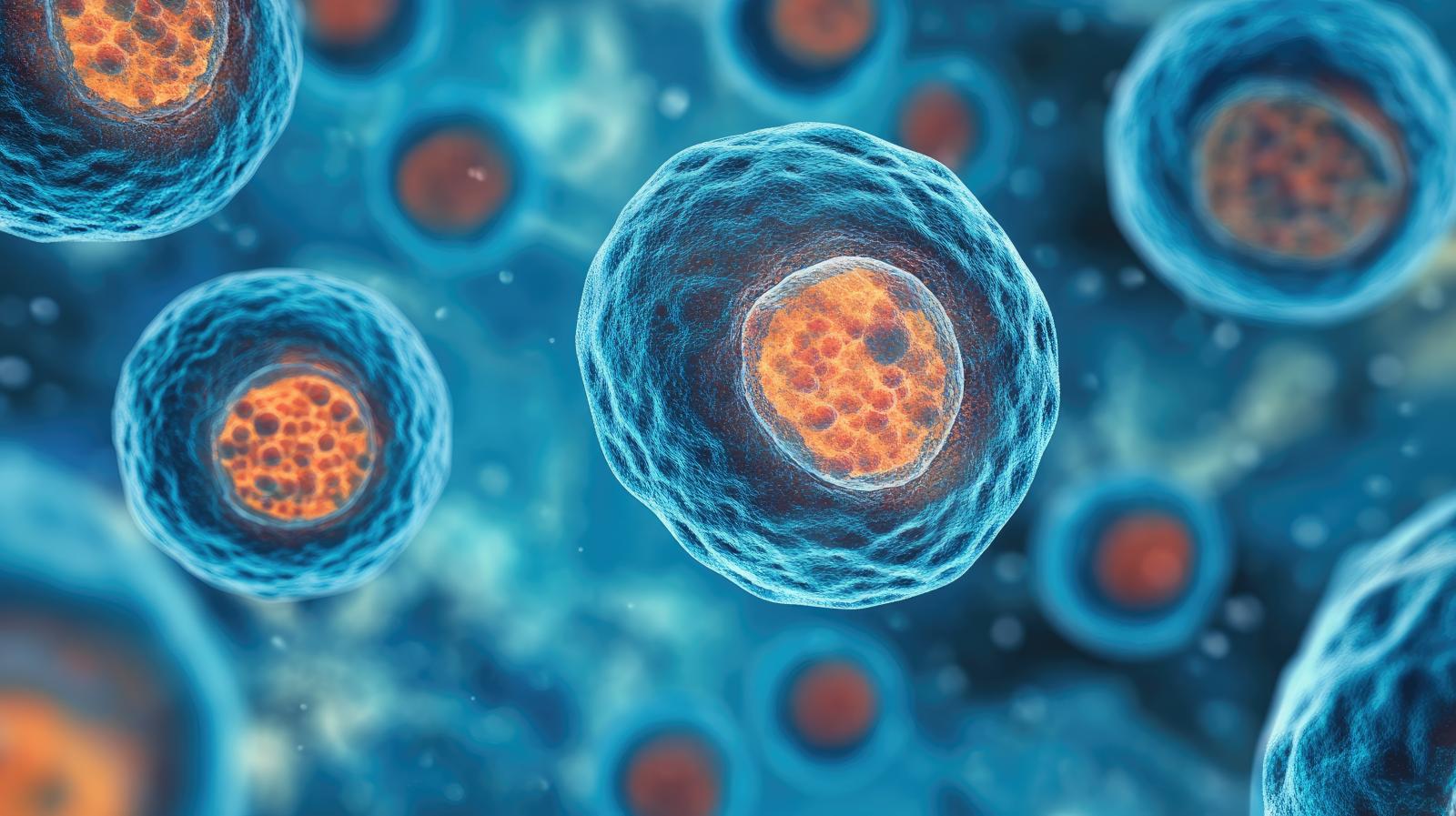
For Conyer, real-world problems can be solved, or at least understood, through researching polycomb-group proteins to understand why certain genes turn into those that make some people more susceptible to certain diseases and cancers.
“Polycomb, in the end, basically helps researchers better understand development of the body,” explained Conyer. “We look at stem cells, because they're the beginning of formation. We're trying to understand what in the body says, ‘OK, this cell is going to turn into that cell.’ It’s understanding that pathway and understanding human development and gene regulation.”
Reiterating how impactful her scholarships have been, the budding engineer is grateful not only for the financial aid afforded her by the fundraising activities of Charter Day and beyond, but for the community of Bison past, present, and future who are committed to paying it forward.
“It’s beyond a scholarship,” said Conyer. “It's people who really see your potential and want to help support you. That's why I came to Howard — so that I could have people around me who believe in me and care about my success.”
“It’s an amazing honor; I think the biggest honor is it’s coming from alumni, people who I look up to and who are my mentors,” said Conyer. “For them to believe so much in my journey, even if they don't know me personally, but are really lifting me as they climb, is a testament to the power of Howard.”
"I've been so blessed that through my scholarships from Howard, I've been able to not have a financial burden.”
Saying she didn’t want to be “just a number” during her undergraduate experience, only able to attend classes and go to work, Conyer credits her scholarships with allowing her to fully engage with the Howard community. “I've been so blessed that through my scholarships from Howard, I've been able to not have a financial burden,” she explained. “I can really interact with my community, whether through mentoring young girls in the D.C. area or putting on programming with Alpha Kappa Alpha Sorority Inc.; just being so involved in the community.”
The senior is also a senator on campus and assists with the allocation of money to different student clubs and organizations. “I know how impactful that is to other students’ experiences, and it's been so significant to me because I feel like I've been able to live out what college is and learn so much more about myself because I have the time, space, and resources to succeed academically.”
And she is succeeding academically as a chemical engineer major, which she credits to the support of mentors and fellow Karsh scholars. “I was a biology major and switched to chemical engineering because of my Karsh scholar mentors, and because that community really poured into me,” said Conyer.
While the upcoming graduate hopes to contribute to the solutions of real-world problems, she’s also determined to make a difference within her community, the same way Howard's students and faculty have made a difference in her own life. “I want to help solve big problems using the skills that I've learned through chemical engineering; to solve a lot of the issues that we see, especially inequalities in healthcare,” said Conyer before discussing the impact she hopes to have as a mentor to young Black women, including those interested in pursuing STEM degrees and careers.
“Mentoring means everything to me,” said Conyer. While some of her mentees may not have big sisters, for example, who are into math and science to look up to, they have Conyer. She works hard to motivate and show them that Black women can and do succeed in STEM related fields, just as her mentors have done for her. “When I tell them, ‘Oh yeah, I do science. I do math,’ and they're like, ‘I like science. I like math,’ I tell them to keep going. Being that motivator is so important, especially in STEM,” said Conyer.
“It's people who really see your potential and want to help support you with that, and that’s why I came to Howard — so that I could have people around me who believe in me and care about my success.”
Noting that when she graduates, she will be one of less than 4% of Black women in her field, Conyer admits she wasn’t sure she could achieve this goal. “I didn't think I could be an engineer until I came to Howard as biology major and people mentored me and told me that I could do it."


